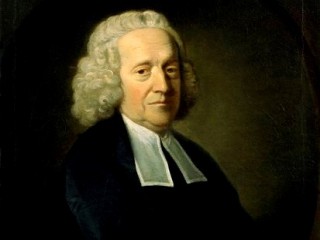
Stephen Hales biography
Date of birth : 1677-09-17
Date of death : 1761-01-04
Birthplace : Bekesbourne, Kent, England
Nationality : English
Category : Science and Technology
Last modified : 2011-12-20
Credited as : physiologist, chemist and inventor, invented the surgical forceps
5 votes so far
Hales studied the role of air and water in the maintenance of any form of life. He gave accurate accounts of the movements of water in plants, and demonstrated that plants absorb air. Hales discovered the dangers of breathing stale air, and invented a ventilator which improved survival rates when employed on ships, in hospitals and in prisons.
Hales is also credited with important work in pneumatic chemistry, especially the development of the pneumatic trough, used for collecting gases generated in laboratory experiments.Hales most important invention was the surgical forceps.
Stephen Hales was born at Bekesbourne in Kent on the 7th or 17th of September 1677, the fifth (perhaps sixth) son of Thomas Hales, whose father, Sir Robert Hales, was created a baronet by Charles II in 1670. In June 1696 he was entered as a pensioner of Benet (now Corpus Christi) College, Cambridge, with the view of taking holy orders, and in February 1703 was admitted to a fellowship. He received the degree of master of arts in 1703 and of bachelor of divinity in 1711. One of his most intimate friends was William Stukeley with whom he studied anatomy, chemistry, etc. In 1708-09 Hales was presented to the perpetual curacy of Teddington in Middlesex, where he remained all his life, notwithstanding that he was subsequently appointed rector of Porlock in Somerset, and later of Faringdon in Hampshire. In 1717 he was elected fellow of the Royal Society, which awarded him the Copley medal in 1739. In 1732 he was named one of a committee for establishing a colony in Georgia, and the next year he received the degree of doctor of divinity from Oxford. He was appointed almoner to the princess-dowager of Wales in 1750. On the death of Sir Hans Sloane in 1753, Hales was chosen foreign associate of the French Academy of Sciences. He died at Teddington on the 4th of January 1761.
Hales is best known for his Statical Essays. The first volume, Vegetable Staticks (1727), contains an account of numerous experiments in plant-physiology -- the loss of water in plants by evaporation, the rate of growth of shoots and leaves, variations in root-force at different times of the day, etc. Considering it very probable that plants draw "through their leaves some part of their nourishment from the air", he undertook experiments to show in "how great a proportion air is wrought into the composition of animal, vegetable and mineral substances"; though this "analysis of the air" did not lead him to any very clear ideas about the composition of the atmosphere, in the course of his inquiries he collected gases over water in vessels separate from those in which they were generated, and thus used what was to all intents and purposes a "pneumatic trough." The second volume (1733) on Haemostaticks, containing experiments on the "force of the blood" in various animals, its rate of flow, the capacity of the different vessels, etc., entitles him to be regarded as one of the originators of experimental physiology.
But he did not confine his attention to abstract inquiries. The quest of a solvent for calculus in the bladder and kidneys was pursued by him as by others at the period, and he devised a form of forceps which, on the testimony of John Ranby (1703-1773), sergeant-surgeon to George II, extracted stones with "great ease and readiness." His observations of the evil effect of vitiated air caused him to devise a "ventilator" (a modified organ-bellows) by which fresh air could be conveyed into jails, hospitals, the hold of a ship, etc.; this apparatus was successful in reducing the mortality in the Savoy prison, and it was introduced into France by the aid of H. L. Duhamel du Monceau. Among other things Hales invented a "sea-gauge" for sounding, and processes for distilling fresh from sea water, for preserving corn from weevils by fumigation with brimstone, and for salting animals whole by passing brine into their arteries. His Admonition to the Drinkers of Gin, Brandy, etc., published anonymously in 1734, has been several times reprinted.
















